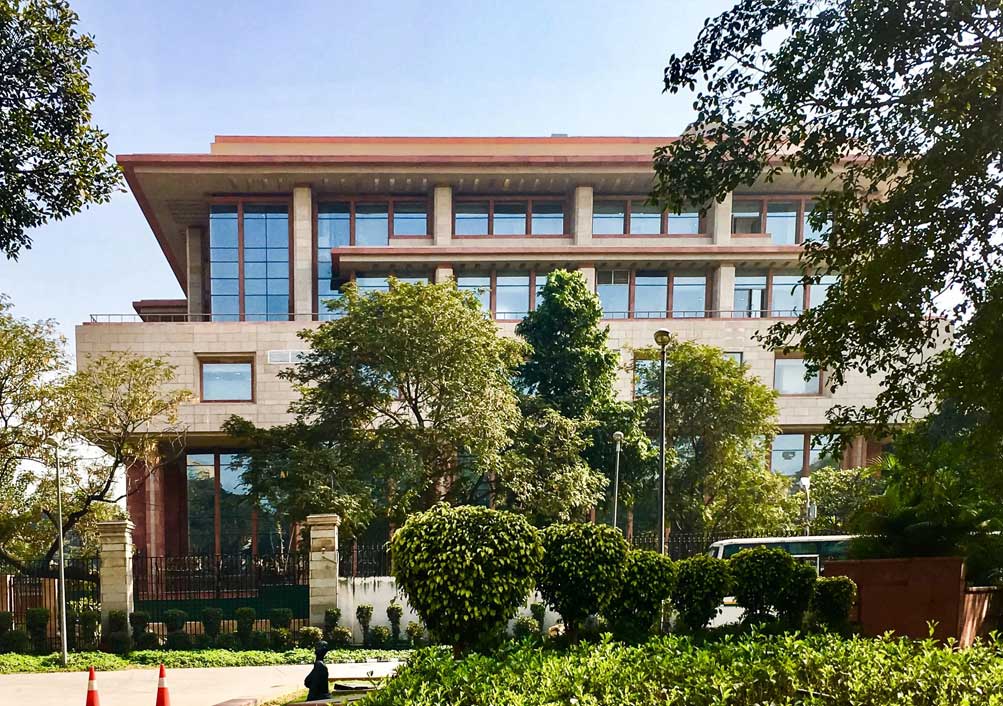InBail Appln. 841/2021 -DEL HC- Delhi High Court grants bail in NDPS case, says prolonged incarceration overrides NDPS Act statutory restriction
Justice Amit Sharma [14-09-2023]

Read Order:Manu Khosla V. Directorate of Revenue Intelligence
Chahat Varma
New Delhi, September 15, 2023: The Delhi High Court has granted bail to an accused in a Narcotic Drugs and Psychotropic Substances case, emphasizing that in situations where prolonged incarceration of the accused would result in a violation of their fundamental rights, the statutory embargo outlined in Section 37(1)(b)(ii) of the Narcotic Drugs and Psychotropic Substances Act, 1985 (NDPS Act) must be set aside.
The present application had been filed on behalf of the applicant, who was seeking regular bail in a case, that had arisen out of a complaint filed by the Directorate of Revenue Intelligence. The case pertained to offenses under sections 22(c), 29, and 30 of the NDPS Act.
The senior counsel, who had appeared on behalf of the applicant, had submitted that the prosecution's case was full with material contradictions. It had been argued that, aside from the confessional statements recorded under Section 67 of the NDPS Act, which were inadmissible, the other evidence relied upon by the prosecution was inconclusive. Therefore, it was contended that, the applicant should be granted bail, with the benefit of doubt being extended to them.
The single-judge bench of Justice Amit Sharma had observed that, admittedly, the public witnesses cited by the prosecution had turned hostile in terms of identifying the vehicle from which a substantial recovery of contraband had been made. These witnesses, in their testimonies recorded before the Special Court, had presented a completely different narrative that was in stark contrast to the prosecution's case. The bench emphasized that the ultimate determination of the veracity of these witnesses' testimony would be made by the Special Judge. However, for the purpose of the present bail application, the contradictions in the prosecution's case could not be disregarded.
The bench referred to Union of India v. Shiv Shankar Kesari [LQ/SC/2007/1115] and observed that the court while considering the application for bail with reference to Section 37 of the Act, it is not called upon to record a finding of not guilty. It is for the limited purpose essentially confined to the question of releasing the accused on bail that the court is called upon to see if there are reasonable grounds for believing that the accused is not guilty and records its satisfaction about the existence of such grounds.
The bench additionally noted that when a timely trial is not feasible, courts are generally obligated to release undertrial individuals on bail. Statutory restrictions do not preclude the discretion of constitutional courts to grant bail based on violations of fundamental rights as enshrined in Part III of the Constitution.
The bench also referred to Rabi Prakash v. The State of Orissa [LQ/SC/2023/982], where the Supreme Court had held that the prolonged incarceration of a person overrides the statutory restriction contained in Section 37(1)(b)(ii) of the NDPS Act.
Thus, the bench noted that the applicant in the present case had been in custody for a period of 3 years and 10 months. Furthermore, out of the forty-two witnesses presented by the prosecution, only twenty had been examined thus far. Notably, PW-6, the seizing officer responsible for the recovery from the applicant's office premises, had been untraceable for the past five years. The bench had also observed that the applicant had been granted interim bail by the court on multiple occasions and had not abused the liberty granted to him, consistently surrendering within the stipulated timeframes.
Based on the above observations, the applicant was granted bail.
Sign up for our weekly newsletter to stay up to date on our product, events featured blog, special offer and all of the exciting things that take place here at Legitquest.




Add a Comment